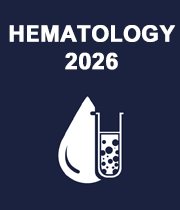Hemoglobin in Humans and Other Species
Hemoglobin, often known as Hb or Hgb, is an iron-containing oxygen-transport metalloprotein found in the red blood cells (erythrocytes) of almost all vertebrates (with the exception of the fish family Channichthyidaes and some invertebrates' tissues). Blood contains haemoglobin, which transports oxygen from the lungs or gills to the rest of the body (i.e., the tissues). It then releases the oxygen, allowing aerobic respiration to supply energy to the organism's tasks in the process known as metabolism. In every 100 mL of blood, a healthy person possesses 12 to 20 grams of haemoglobin. The protein makes up roughly 96 percent of the dry content (by weight) of red blood cells in mammals, and around 35 percent of the overall content (including water). A haemoglobin electrophoresis test is a blood test that determines the various forms of haemoglobin present in the blood. Hemoglobin is the oxygen-carrying molecule in red blood cells. A high level of normal haemoglobin or an atypical form of haemoglobin in the blood can indicate the presence of a disease. Abnormal haemoglobin types might exist without causing any other symptoms, produce moderate disorders with no symptoms, or induce life-threatening conditions.
- Sickle cell Anaemia
- Abnormal Hemoglobin



Title : Acute intermittent porphyria: A neurological dilemma obscured by ubiquitous fgastrointestinal presentation
Mayank Anand Singh, Mimer Medical College, India
Title : Comprehensive symptom management and supportive nursing care in a preterm toddler undergoing HSCT for pyruvate kinase deficiency
Tran Thi Dung, Vinmec International Hospital, Vietnam